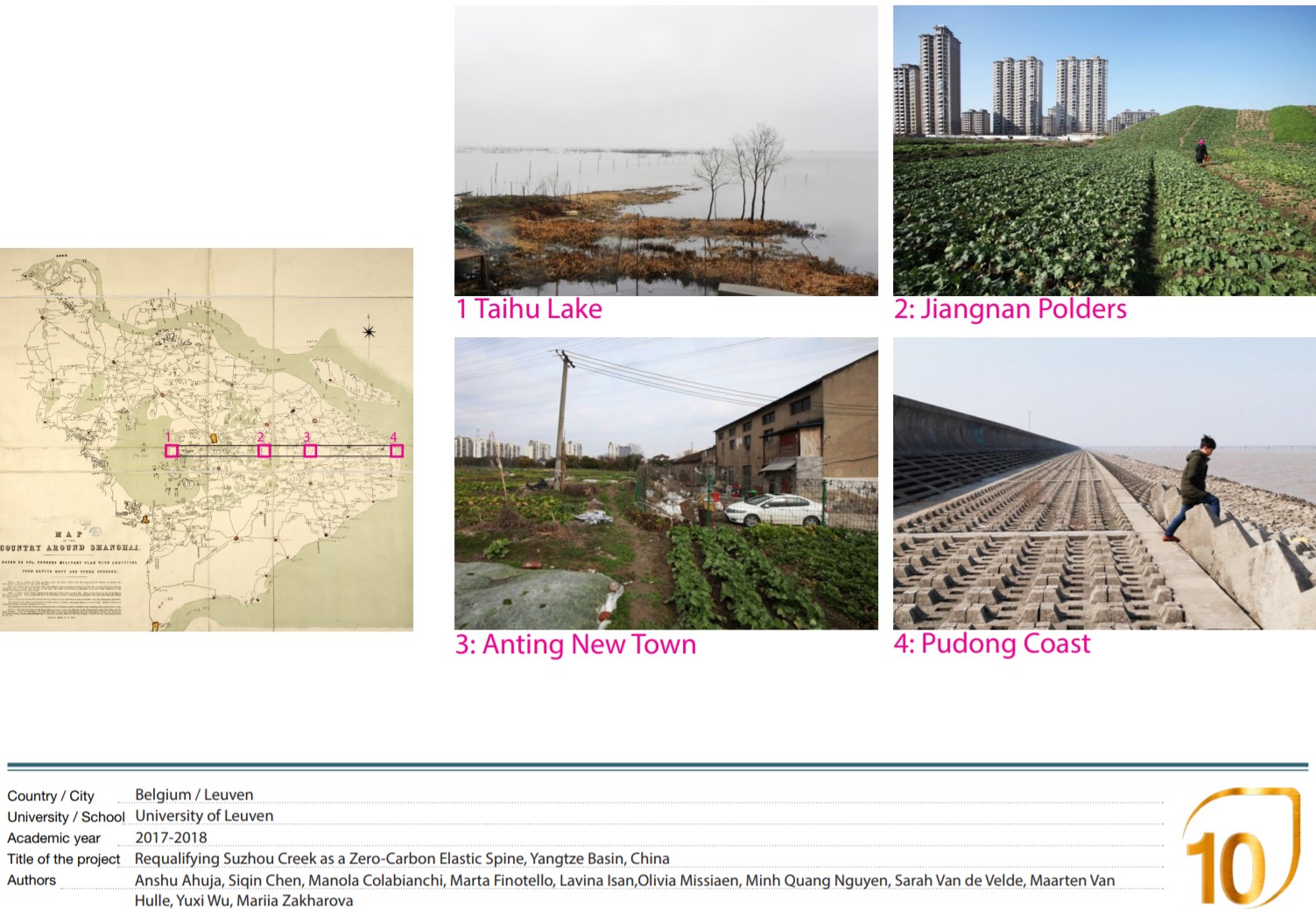
Requalifying Suzhou Creek as a Zero-Carbon Elastic Spine Yangtze Basin, China
Landscape Urbanism Studio: Climate Change & Urban Deltas
University of Leuven
The transect is 140 km x 10 km, located in the Taihu Basin of the Yangtze River Delta. The vision is premised on rebalancing ecology and creating new landscape structures to both adapt to climate change and frame future urbanization. Across the transect, new landscape and settlement morphologies/ typologies are developed. Two distinct water landscapes frame the transect. Taihu Lake in the west supplies drinking water and Pudong Coast is in the east. Between is a continuous, non-hierarchical pattern of urbanization which includes Suzhou, an ancient water town of 10 million inhabitants, and Shanghai, a metropole of 24 million inhabitants. While the coast has to cope with sea level rise (1 meter by 2050), Taihu Lake suffers from issues related to water quality and quantity. Learning from indigenous techniques for floodwater management, there is the opportunity to move away from flood control towards controlled flooding. Suzhou Creek is requalified to become the territory’s primary spine which, in turn, restructures open and built space. It is reestablished as the lifeline, literally and figuratively of Taihu Basin. It is a linear ecological threshold which is conceptually elastic in that it contains a sequence of productive, performative and recreational landscapes. Orchards mark an expanded public realm and reveal its continuity. The new hybridized, elastic water spine frames strategic densification. Within the logic of constructing a New Socialist Countryside, a territory of new nature is established to simultaneously absorb flood waters and future population growth (within new hybrid, medium-rise, high-density zero-carbon typologies).
